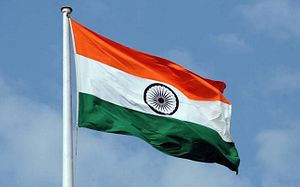India has been admitted as the 42nd member of the Wassenaar Arrangement, a global export control regime. This development will burnish India’s nonproliferation credentials and broaden its access to sensitive technologies.
On Thursday, the members of the Wassenaar Arrangement, during their two-day plenary meeting in Vienna, decided to admit India. In a statement, they noted:
Wassenaar Arrangement participating states reviewed the progress of a number of current membership applications and agreed at the plenary meeting to admit India which will become the Arrangement’s 42nd participating state as soon as the necessary procedural arrangements for joining the WA are completed.
Formally known as the Wassenaar Arrangement on Export Controls for Conventional Arms and Dual-Use Goods and Technologies, the organization is designed to regulate the export of sensitive technologies that could possibly lead to “destabilizing accumulations,” according to its guidelines.
Since its founding in 1996, the Arrangement has become an important component of the global nonproliferation regime, with member states exchanging information on their transfers of conventional weapons and dual-use goods to states outside of the arrangement.
To be admitted to the Arrangement, states must meet certain criteria, including acquiescence to a range of global nonproliferation treaties, including the Nuclear Nonproliferation Treaty (NPT).
India’s admission to the Arrangement is not predicated on this requirement; New Delhi has never signed the NPT and has sought to burnish its nonproliferation credentials through its behavior and policies since its nuclear breakout in 1998.
Though admission requires consensus, the United States’ backing for Indian admission into the Arrangement — reaffirmed prominently by the Obama administration — helped New Delhi’s case.
Moreover, the U.S. backing for India in the aftermath of the two countries’ bilateral agreement on civil nuclear cooperation in 2005 helped New Delhi acquire a waiver from the Nuclear Suppliers Group in 2008 and accede to the Missile Technology Control Regime (MTCR) in 2016.
India has also applied for membership in the Australia Group, an informal export control grouping concerned with the nonproliferation of chemical and biological weapons.
India’s admission to the Wassenaar Arrangement was in part facilitated by China’s nonparticipation in the Arrangement. (Beijing does informally maintain export control standards largely in line with those required by the Arrangement.)
In 2016, China opposed India’s accession to the Nuclear Suppliers Group, frustrating New Delhi, which had invested considerable diplomatic capital into its membership campaign. Membership in the group is by consensus.
India’s membership in the Wassenaar Arrangement partly hinged on a lack of consensus, with Italy having objected to New Delhi’s participation until the two countries repaired their bilateral relationship this year following a multiple-year spat over the fate of two Italian marines who killed two Indian fishermen in 2012.
Earlier this year, India had updated its export control lists to bring them in line with international standards, including those required by the Wassenaar Arrangement.

































